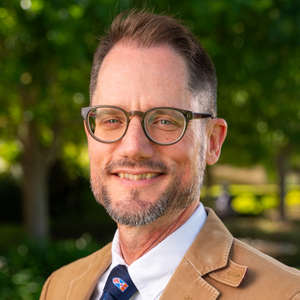Over the past three years I have had the privilege of serving as a part-time pastor in a local church here in Southern California. Though I’ve been in ministry for several years and have even spent significant time overseas, these past few years have constituted a re-education in the gospel. Here is what I mean:
“The gospel” is a phrase that Christians often use without fully understanding its significance. We speak the language of the gospel, but we rarely apply the gospel to every aspect of our lives. Yet this is exactly what God wants for us. The gospel is nothing less than “the power of God” (Rom. 1:16). In Colossians 1:6, the apostle Paul commends the Colossian church because the gospel has been “bearing fruit and growing...among [them] since the day [they] heard it.” The apostle Peter teaches that a lack of ongoing transformation in our lives comes from forgetting what God has done for us in the gospel (2 Peter 1:3–9). If we are to grow into maturity in Christ, we must deepen and enlarge our understanding of the gospel as the way God transforms us.
Rather than enlarging our understanding of the gospel, often we live with a truncated view of the gospel. We see the gospel as the “door,” the way in, the entrance point into God’s kingdom—yet the gospel is so much more. It’s not just the door, but the path we are to walk every day of the Christian life. It’s not just the means of our salvation, but the means of our transformation. If you think of a number line ranging from negative 3 to positive 3, the gospel doesn’t merely get us to 0. It’s not as if the gospel merely erases our sin problem only. No, rather, the gospel is what moves us onto holiness as well—it moves us from -3 to +3. Another way to say that is that the gospel is what makes us right with God (justification) and it is also what frees us to delight in God (sanctification). The gospel is the key to transformation.
The starting point of the Christian life (conversion) comes when we first become aware of the gap between God’s holiness and our sinfulness. At conversion we trust and hope in Jesus who has accomplished what we ourselves could never do: He has bridged the gap between our sinfulness and God’s holiness.
At the point of conversion, however, we have a very limited view of God’s holiness and of our sin. The more we grow in the Christian life, the more we grow in both our awareness of God’s holiness and of our brokenness and sinfulness. It is not that God is becoming more holy or that we are becoming more sinful, rather an awareness of both is growing.
As an understanding of sin and of God’s holiness grows, something else also grows: an appreciation and love for Jesus. His mediation, His sacrifice, His righteousness, and His gracious work on my behalf become increasingly sweet and powerful. The cross looms larger and more central in the Christian life as we rejoice in the Savior who died upon it.
But here’s the rub. Because sanctification—growth in holiness or transformation—doesn’t work quite as neatly as we’d like, because of the indwelling sin that remains in us, we have an ongoing tendency to minimize the gospel or “shrink the cross.” This happens when we either (a) minimize God’s perfect holiness, thinking of Him as something less than His Word declares Him to be, or (b) elevate our own righteousness, thinking of ourselves as better than we actually are. The cross becomes smaller and Christ’s importance in our lives is diminished.
Because we forget to walk in step with the gospel—especially as Christians—we have a tendency to minimize our brokenness and sin. Here are a few ways believers often hide or deflect sin:
DEFENDING
I find it difficult to receive feedback about weaknesses or sin. When confronted, my tendency is to explain things away, talk about my successes, or justify my decisions. As a result, people are hesitant to approach me and I rarely have conversations about difficult things in my life.
FAKING
I strive to keep up appearances and maintain a respectable image. My behavior, to some degree, is driven by what I think others think of me. I also do not like to think reflectively about my life. As a result, not many people know the real me. (I may not even know the real me.)
HIDING
I tend to conceal as much as I can about my life, especially the “bad stuff.” This is different from faking, in that faking is about impressing. Hiding is more about shame. I don’t think people will accept or love the real me.
EXAGGERATING
I tend to think (and talk) more highly of myself than I ought. I make things (good and bad) out to be much bigger than they are (usually to get attention). As a result, things often get more attention than they deserve and have a way of making me stressed or anxious.
BLAMING
I am quick to blame others for sin or circumstances. I have a difficult time “owning” my contributions to sin or conflict. There is an element of pride that assumes it’s not my fault and/or an element of fear of rejection if it is my fault.
DOWNPLAYING
I tend to give little weight to sin or circumstances in my life, as if they are “normal” or “not that bad.” As a result, things often don’t get the attention they deserve. They have a way of mounting up to the point of being overwhelming (these categories come from World Harvest Mission's, Gospel-Centered Life material).
To counteract our sinful tendency to shrink the gospel, we must constantly nourish our minds on the truth of Scripture. We need to know, see, and savor the holy, righteous character of God. And we need to identify, admit, and feel the depth of our brokenness and sinfulness. These are the two legs a Christian walks on—faith (God’s holiness) and repentance (admitting our sin). Walking in both lead to a life marked by transforming joy, hope, and love.
Growing in the gospel means seeing more of God’s holiness and more of our sin. And because of what Jesus has done for us on the cross, we need not fear seeing God as He really is or admitting how broken we really are. Our hope is not in our own goodness, nor in the vain expectation that God will compromise His standards and “grade on a curve.” Rather, we rest in Jesus as our perfect Redeemer—the One who is “our righteousness, holiness and redemption” (1 Cor. 1:30). The gospel is the key to enduring transformation.
 Biola University
Biola University


.jpg)
